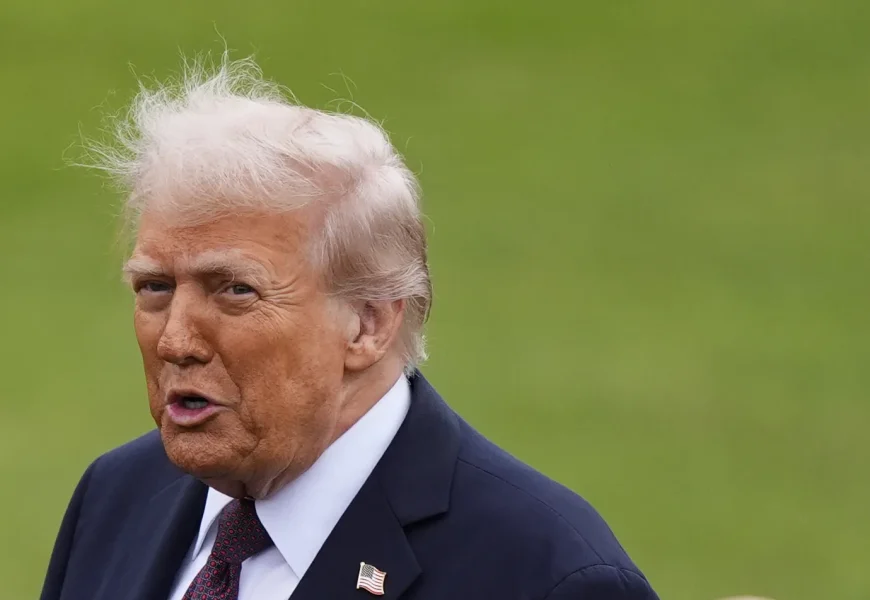Antifa is a domestic entity and, as such, is not a candidate for inclusion on the State Department’s list of foreign terror organizations. Dozens of groups, including extremist organizations like the Islamic State and al-Qaida, are included on that list. The designation matters in part because it enables the Justice Department to prosecute those who give material support to entities on that list even if that support does not result in violence.
There is no domestic equivalent to that list in part because of broad First Amendment protections enjoyed by organizations operating within the United States. And despite periodic calls, particularly after mass shootings by white supremacists, to establish a domestic terrorism law, no singular statute now exists.
In an exchange with reporters in the Oval Office on Monday, Trump said he would pursue a domestic terrorism designation for antifa if such a move had the support of Attorney General Pam Bondi and others in his Cabinet.
“It’s something I would do, yeah,” Trump said. “I would do that 100%. Antifa is terrible.”
Wednesday night, Sen. Bill Cassidy, R-La., praised Trump’s announcement, saying: “Antifa seized upon a movement of legitimate grievances to promote violence and anarchy, working against justice for all. The President is right to recognize the destructive role of Antifa by designating them domestic terrorists.” In July 2019, Cassidy and Sen. Ted Cruz, R-Texas, introduced a resolution in the Senate to condemn the violent acts of antifa and to designate the group a domestic terror organization.


